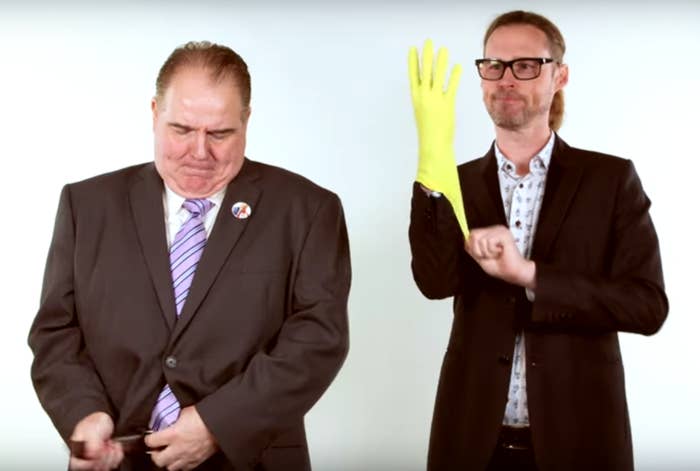
Four months ago, in a $29 million home that the Wall Street Journal described as "a steampunk Downton Abbey with a dash of the Raj," Silicon Valley millionaire Michael Birch and his wife hosted a fundraiser for Hillary Clinton. Clinton is aggressively courting Silicon Valley types, a group among which Birch is well-known.
But when Birch reached out to his friends in the Valley about supporting Clinton, he was struck by the response of Facebook exec turned venture capitalist Ethan Beard, who said that, in lieu of political donations, he’d be donating money to a four-year-old campaign finance reform nonprofit called Represent.Us.
Represent.Us is a “fiercely bipartisan” national organization that advocates for legislation on the state and local level, such as the anti-corruption bill currently on the docket in Florida’s state Senate. Corruption, in this case, isn’t a vague concept, but a list of specific — and legal — activities like “secret” (unreported) campaign donations and the “revolving door” of government officials who get hired as lobbyists by the industries they previously regulated. The organization has 350,000 supporters on Facebook and pending legislation in two states and 10 cities, according to Senior Communications Director Charlotte Hill.
Birch was intrigued by the project; following the Clinton fundraiser, he quit politics altogether. Instead, like Beard, Birch is taking on the mantle of campaign finance reform and backing the Represent.Us mission. He even agreed to make this somewhat lewd and definitely memorable video about political donations.
This week, at the Battery — Birch’s two-year-old Silicon Valley private club — he tried to explain the change of heart.
The British-born, U.S.-naturalized Birch considers himself a Democrat. But like many of Silicon Valley’s tech elite, he walks something of a zig-zag when it comes down to the issues. He’s in favor of universal health care and prison reform, but dislikes unions — especially teachers' unions.
In the past, Birch has spent not-insignificant amounts of money trying to make an impact on the issues he’s passionate about by giving to political campaigns on the state and local level. But in the end, he found the process of spending gobs of money to make very limited change frustrating. “You end up playing the system,” he said. “I’d rather change the system.”
The topic of philanthropy has become something of a minefield in San Francisco. When Mark Zuckerberg announced that he’d be turning the vast majority of his fortune into a limited-liability corporation called the Chan-Zuckerberg Initiative, Zuck got slapped with the term “philanthrocapitalism."
But while the non-billionaire critics were skeptical of Zuckerberg, Birch expressed sympathy for the challenge that lies ahead of the very young billionaire. He says Zuckerberg’s approach makes a lot more sense than allowing that money to be taxed by a government he sees as woefully corrupt.
“You can’t just write one big check and think you’ve solved all the problems in the world.”

